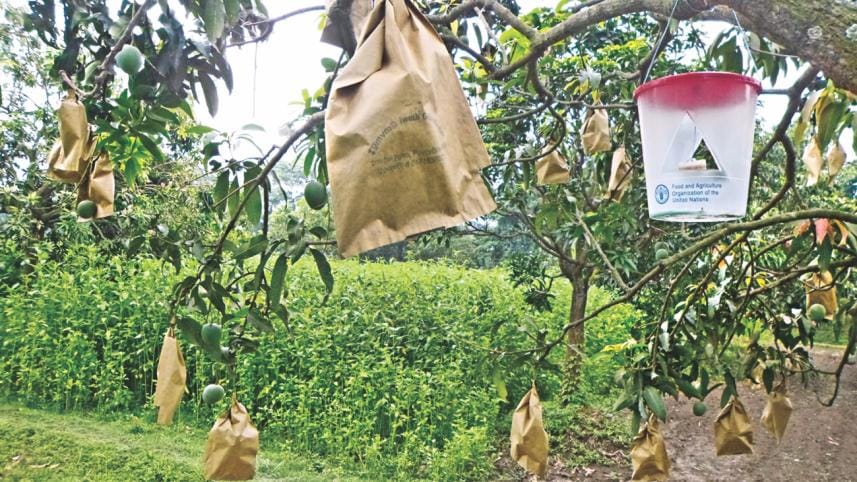Fruit bagging to ensure chemical-free mangoes

Fruit bagging is gaining popularity among the mango growers in the district as an effective alternative to chemical pesticides.
A good number of farmers are also using pheromone traps to hang among plants for catching pests.
More farmers are adopting these two eco-friendly methods after successful use of these at different orchards last year, said scientific officers at the Regional Horticulture Research Station in Chapainawabganj.
Bagging prevents pests, especially fruit flies, from damaging mangoes and checks latex burns and fungal spots on fruits, they added.
The new methods, said the officials, come as a blessing to farmers against the backdrop of widespread use of pesticides and fungicides that threaten ecological balance and public health. They also help farmers have a more reliable estimate of their harvest prospects.
“By protecting mangoes from diseases and pests, the new methods would boost the production of export quality mangoes. They would also ensure protection of mangoes from scratches and scars, making the fruits spotless,” said Sorof Uddin, senior scientific officer at the research station.
When the mangoes are 40 to 55 days old, each of them are bagged until harvest. No pesticide sprays are needed for the fruits once the bags are put on them.
Mango growers usually spray pesticides 15 to 25 times in their orchards in a season. But if they adopted the bagging method, they would require spraying pesticides for only two to three times at the early stage of farming, the official said.
All the leading mango-producing countries have been using this method to have better yields, he noted.
Over 16 lakh bags, costing about Tk 5 each, have already been used in the mango orchards in the district this year, including 11 lakh in Shibganj upazila alone. The number might go up to 25 lakh. Last year orchard owners used only 5 lakh bags, said officials.
 For all latest news, follow The Daily Star's Google News channel.
For all latest news, follow The Daily Star's Google News channel.
Comments